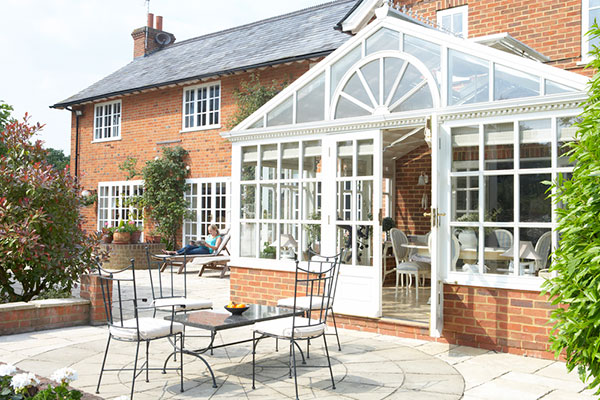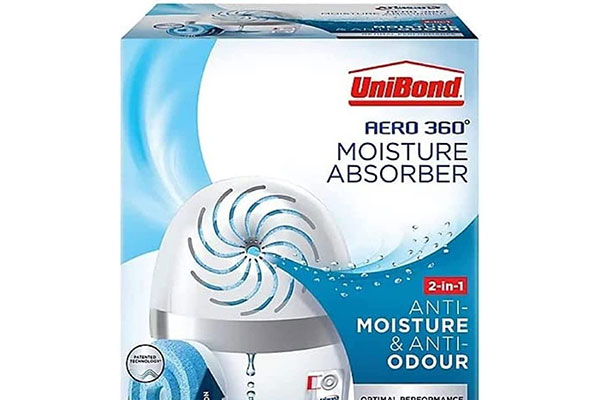Choosing the right dehumidifier for your conservatory may be more complex than you think. Before you commit to buying one, there are a few things to consider, so here we look at some top tips for choosing the right dehumidifier to suit your needs.
Firstly, you must decide between a desiccant or compressor-style dehumidifier. Desiccant dehumidifiers are considered a better choice for British conservatories because they work very efficiently at all temperatures.
A compressor dehumidifier isn’t the best choice for use in a cold conservatory because it would struggle to work well should the temperature in your conservatory fall below 15°C.
If your conservatory isn’t heated, as most are not in the UK, choosing a desiccant dehumidifier can help to take the chill off the air. As a by-product of their energy consumption, desiccant dehumidifiers warm the surrounding air in the conservatory, making it more comfortable to use on chilly mornings in the spring or late into autumn.
When a compressor dehumidifier can be useful
Although we recommend a desiccant dehumidifier as your first choice, there are still some good reasons for choosing a compressor dehumidifier for your conservatory.
Firstly, compressor-style dehumidifiers are cost-effective to run. If you are mindful about keeping your energy bills down, choosing a compressor-style dehumidifier may be a good choice.
Although compressor dehumidifiers are not as effective as desiccant types when running at temperatures below 15°C, they are an excellent choice for running in hot environments. Therefore, if you have a south-facing conservatory that gets plenty of sunshine and is prone to overheat during the summer, a compressor dehumidifier would be an excellent choice to reduce humidity levels in your conservatory and make the space more comfortable for you and your family.
Choosing the right size dehumidifier for your conservatory
If you have a large conservatory with a damp problem, you should choose a dehumidifier with a 7.5-litre capacity. Anything smaller will mean you must empty the water collection reservoir more often. You should also consider choosing a model that has continuous drainage if you have a drain nearby that you can use.
For small or medium-sized conservatories up to 20 sq meters, a dehumidifier with a 100-millilitre capacity would suffice. However, if your conservatory has more severe damp issues, a larger model with a higher collection capacity or continuous drainage would be more manageable.
Most modern styles of dehumidifiers come with adjustable humidity level setting options. This allows you to control the relative humidity levels in your conservatory. In most cases, 30 – 80% relative humidity will be suitable for most British conservatories.
Best choice of humidifier for a large conservatory
For a large conservatory over 20 sq meters, we recommend the EcoAir DD1 Simple MK3 Desiccant Dehumidifier. This model has an easy-to-use rotary dial, quiet running and collects up to 7.5 litres of water per day.
This model is fitted with an anti-bacterial filter, which is helpful for reducing common irritants such as pollen from the air in your conservatory. Despite its large capacity water collection reservoir, the Eco Air Ddi Simple has a lightweight design, weighs just 6 kilogrammes, and comes with a carry handle, making it easy to move around.

EcoAir DD1 Simple MK3
- Water tank full alert
- Auto restart function
- Laundry mode & energy saving mode
- Safety auto shut-off
- Continuous drainage option with 1-meter hose supplied
Best choice of dehumidifier for a small/medium conservatory
We highly recommend the Pro Breeze 1000ml Dehumidifier for use in a small to medium-sized conservatory. This Pro-Breeze model comes with a timer so you don’t need to worry about switching it on and off manually.
It has an auto-shut-off feature to prevent spillage when the water collection reservoir is full. It has a compact design that fits easily into small to medium-sized conservatories without getting in the way or being obtrusive. It is an ideal choice for keeping humidity levels perfect for preventing condensation build-up, damp patches and mould growth in your conservatory.
It has a quiet operation and weighs just 1200 grammes, making it easy to move around and reposition in your conservatory. This model features the latest thermo-electric Peltier technology, which removes up to 450ml of moisture per day. This model should be used in conservatories at 20-30℃ and 60-80% relative humidity for the best performance.

Pro Breeze 1000ml Dehumidifier
- 450ml extraction per day
- 1000ml Water Tank
- Safety auto shut-off
- LED Light
The benefits of choosing the right dehumidifier for your conservatory
Running a dehumidifier in your conservatory can improve the air quality and make the space more comfortable. Dehumidifiers help to prevent condensation build-up on your conservatory windows that can lead to damp and mould growth.
Nothing is worse than relaxing on your conservatory furniture that feels damp and smells musty. You won’t be encouraged to make the best use of your conservatory if it smells terrible and your furniture feels damp. Running a dehumidifier will remove excess moisture from the air that soaks into your soft furnishings and causes damp and musty-smelling materials.
Many people choose to dry laundry in their conservatories, and a dehumidifier with a laundry setting will help to dry wet laundry faster, keeping humidity and condensation levels down.
Choosing the right dehumidifier model will depend on the size of your conservatory and your desired energy usage. As mentioned earlier, a compressor dehumidifier will consume less energy, so a compressor model will be the best choice if you are looking for the most energy-efficient option.
Things to consider before you make your choice include the following:
- Litres-Per-Day Capacity: This doesn’t refer to the tank size but how much moisture the machine can remove from the air.
- Desiccant or Compressor Dehumidifier: As mentioned earlier, each version has its benefits. Compressor models work better in warm environments and are cheaper to run, and desiccant models are more suitable when temperatures go below 15°C and can warm the air that passes through the machine by as much as 10°C.
- Noise levels: Desiccant dehumidifiers are quieter than compressor models. Quieter models tend to cost more but are a good investment if you want to run the machine 24/7.
Last update on 2025-02-28 / Affiliate links / Images from Amazon Product Advertising API







